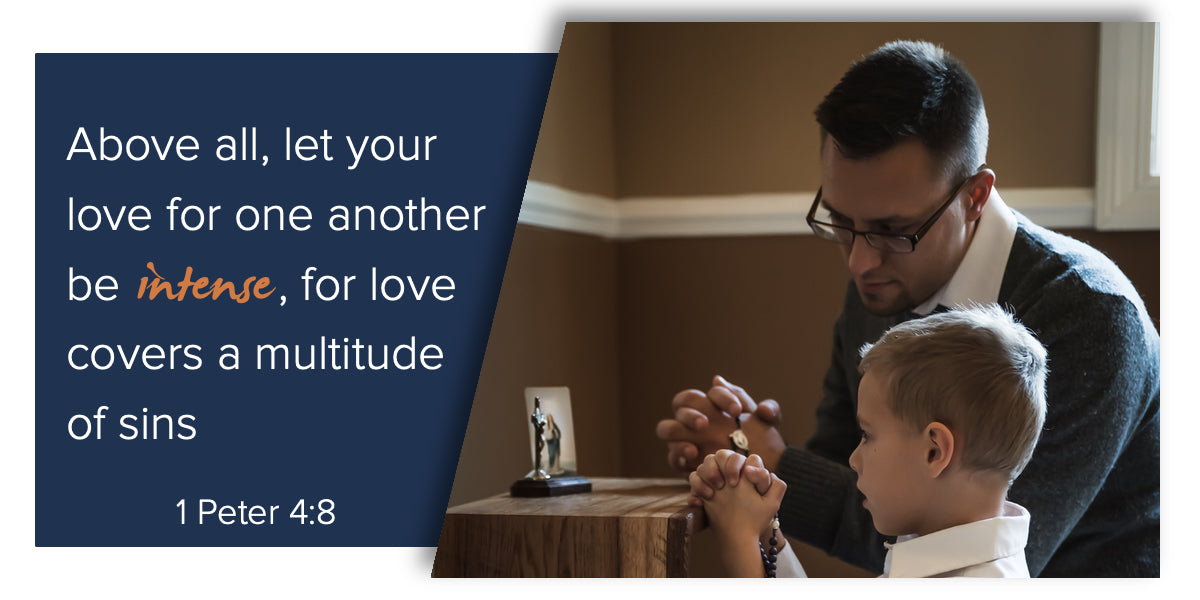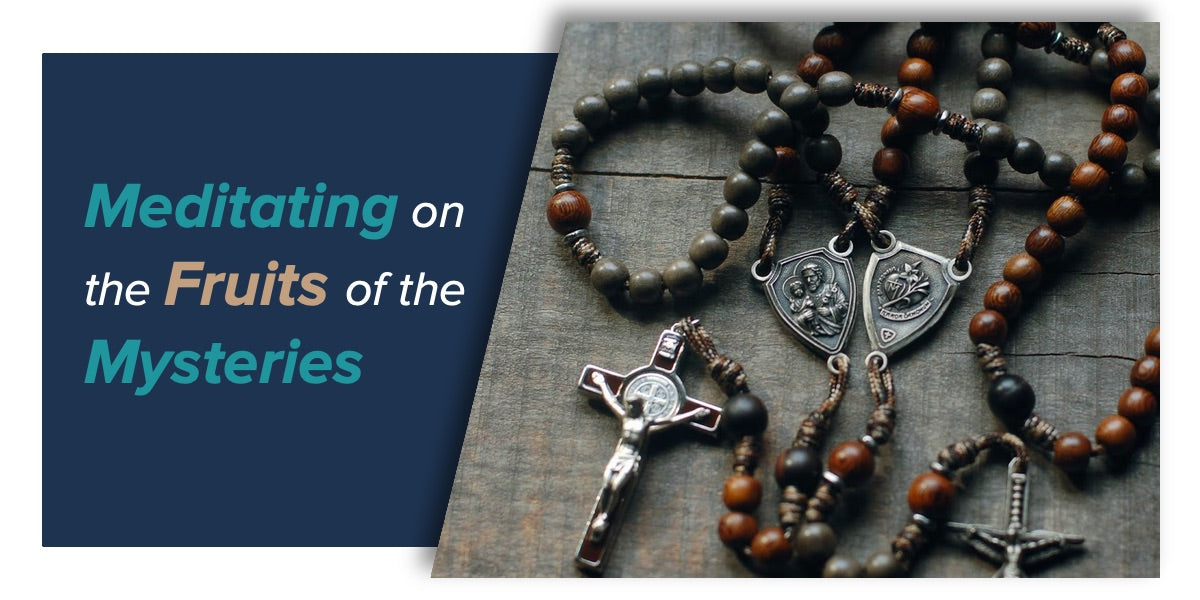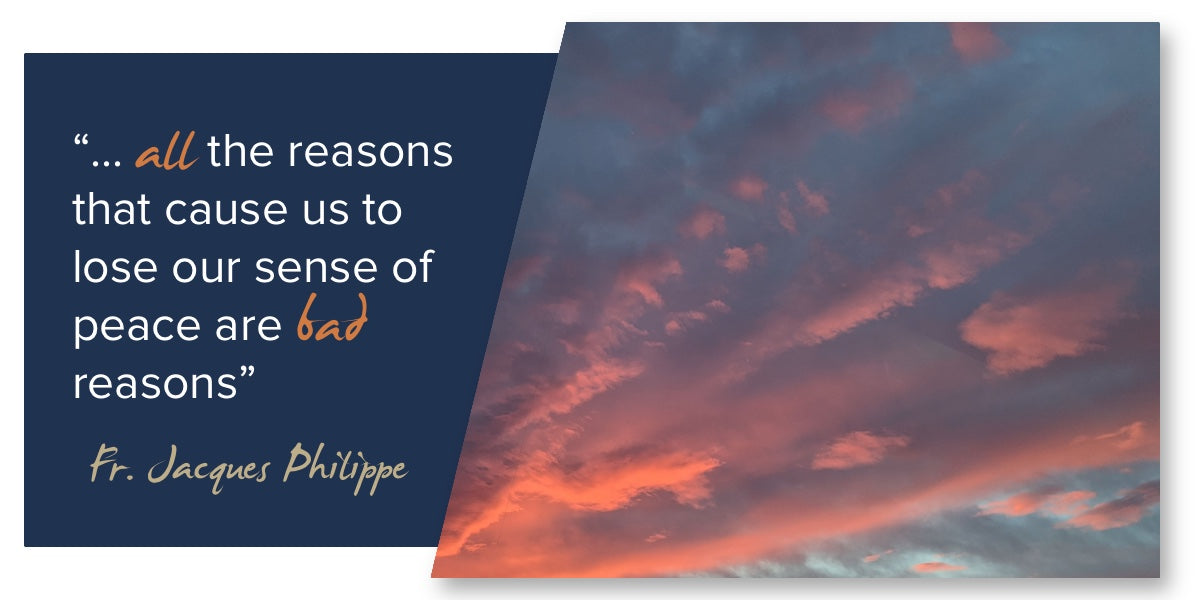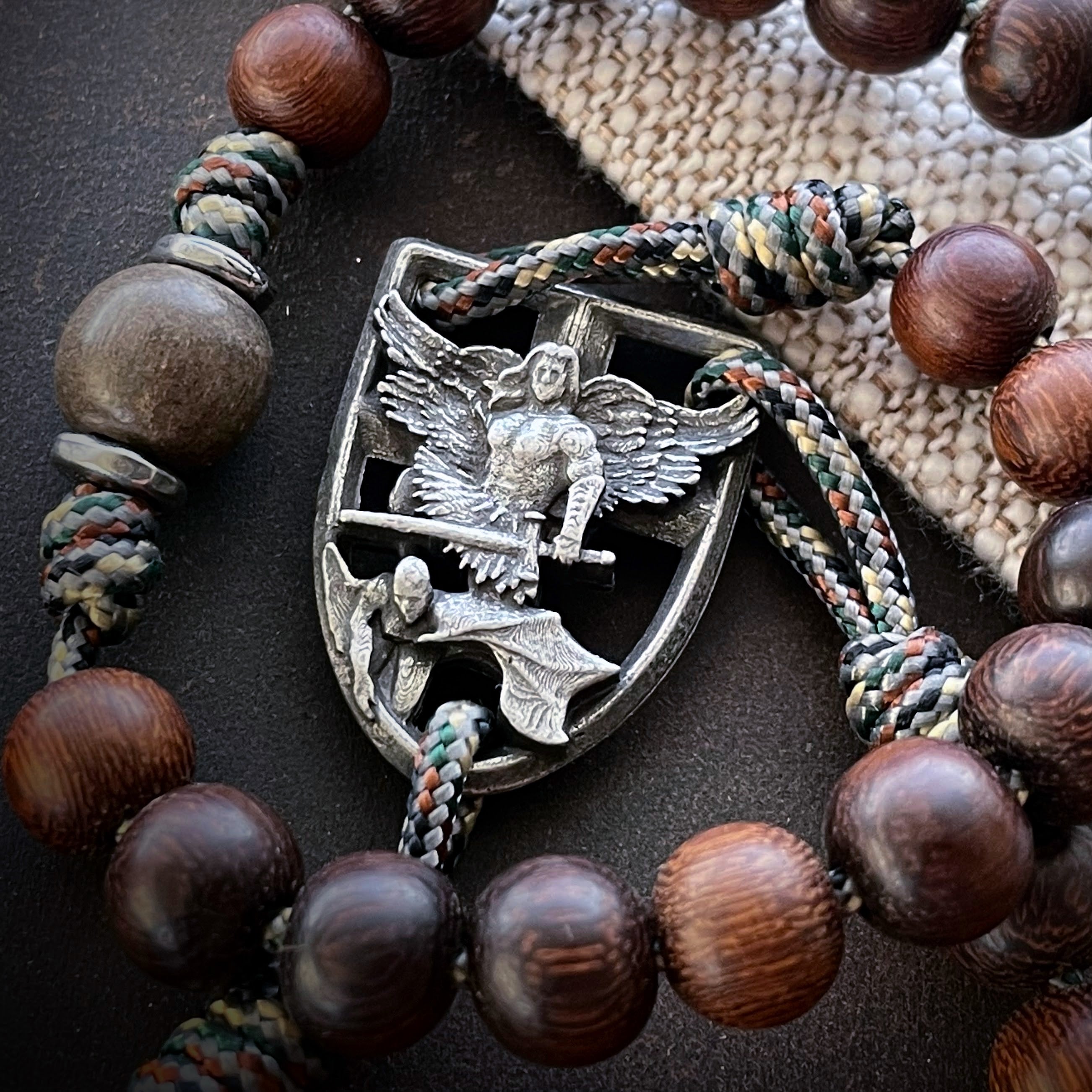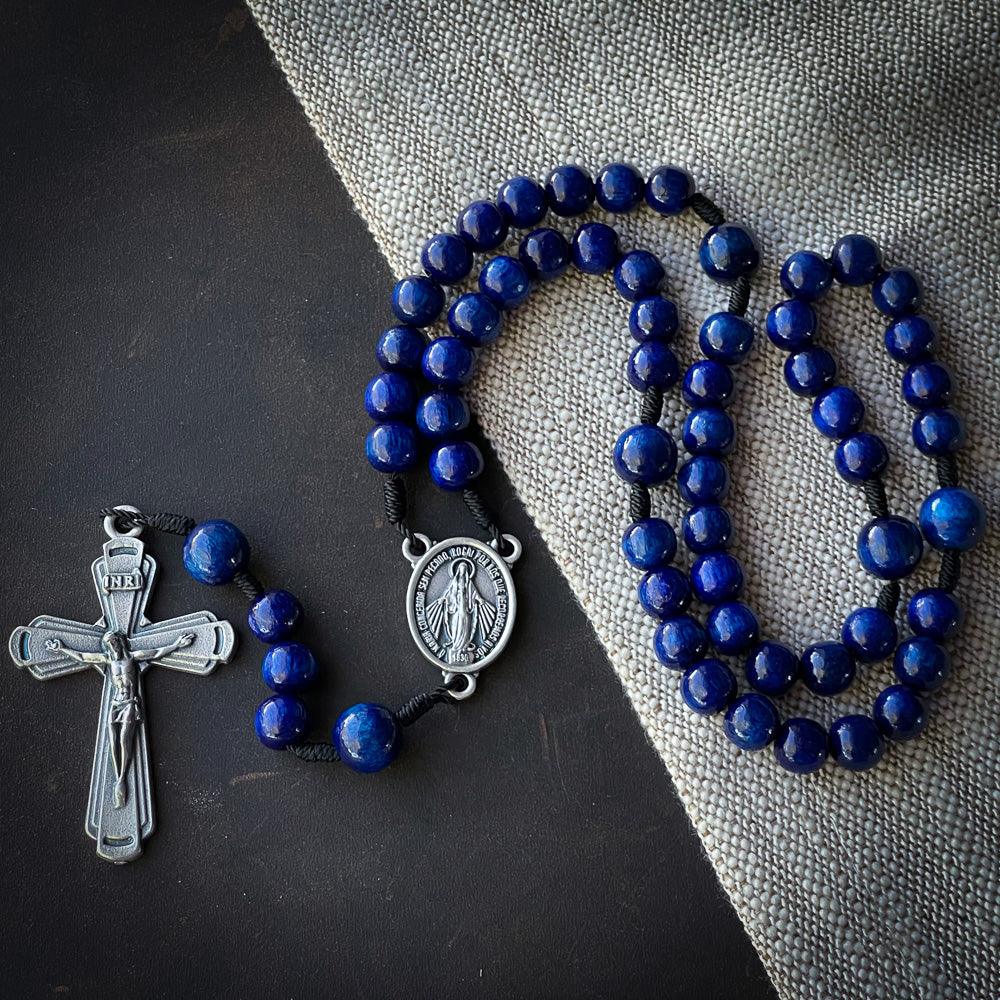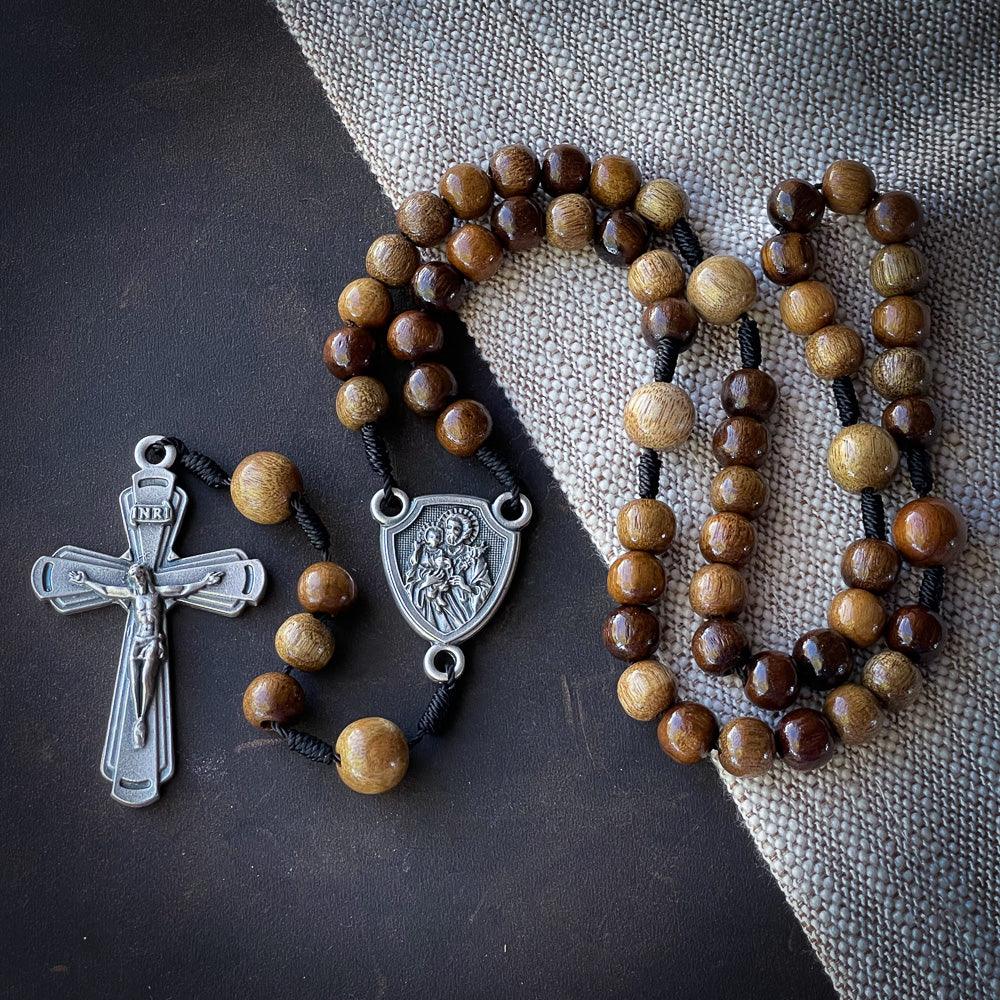We don't need to paint you a picture of how divided the world and the Church have become.
It's easy to see with just a quick scroll through social media. Political posts often overgeneralize, condemn, accuse, blame, and shame with no nuance whatsoever. In the comments, people hurl insults one could never imagine hearing were these individuals talking to each other face to face.
A few temptations arise from this scenario. We might feel tempted to angrily comment to point out how wrong someone else is. We might feel hopeless, fearful, or tending toward despair given the state of things. Or we might even feel disgust for those who have polar opposite opinions.
Modern media combined with human frailty makes it easy for our neighbors and fellow brothers and sisters in Christ to suddenly become "the other" when political affiliations are brought to light. And the temptation to respond to things that are truly evil, sinful, and unjust in a way that is uncharitable and not Christ-like is very real.

Make no mistake: what’s going on in the world matters. Current events are not inconsequential. Elections DO have consequences. The evil that used to cautiously lurk in the shadows seems to be dancing in plain sight on the front lawns of our homes, our church, and our capitol. It is important to note that it is actually virtuous to feel anger toward sin itself. St. Thomas Aquinas wrote about this in the Summa -- if we didn’t feel a certain anger towards evil, we may not be roused to correct it or motivated to instead pursue virtue.
Righteous anger over sin and injustice is directed towards evil itself, and motivates us to do something about it. But anger turns into something sinful when it is directed towards other people, turning into hatred and disgust that pulls us down and darkens our souls.
As Catholics, we ARE called to be soldiers for Christ (2 Tim. 2:3) and to fight for the Truth, but not with derisive, spiteful discourse that does nothing but sow fear and anger in our hearts and drive the Body of Christ and humanity itself further apart. Remember the words of St. Paul, “For our struggle is not with flesh and blood but with the principalities, with the powers, with the world rulers of this present darkness, with the evil spirits in the heavens.”

Then how do we fight the evil we see in the world, as soldiers for Christ? St. Peter summed it up succinctly: “Above all, let your love for one another be intense, for love covers a multitude of sins.”
What We Are Called to Do
We have an obligation to share the Gospel and spread the Truth. And we are called to do that in different ways. The Spiritual and Corporal Works of Mercy give us many beautiful ways to share the Gospel.
Public Discourse
If you have carefully discerned that engaging with others on faith and morals in the public sphere is where you are called, then you ought to know how to argue well. Equip yourself to be an articulate, rational, well-reasoned voice for the Truth.
A great place to start is a recent video by Matt Fradd, 7 Ways to Argue Better, which explores 7 things we can learn from St. Thomas Aquinas on how to argue more effectively and charitably.
In addition, being well-formed in faith is also a way of carrying out the Spiritual Works of Mercy. When friends, family, or acquaintances ask you why you are Catholic, being well-catechized helps you give your reasons for your joy and your love for Christ and His Church.
Corporal Works of Mercy
There is so much suffering in our nation and around the world -- so much spiritual and material poverty. When we see suffering and injustice, it is not uncommon to feel overwhelmed by it. It’s also a temptation to despair over just how much “bad” there is in the world.
Identify what makes you tend toward despair. If it’s the news, set limits. If it’s social media, stop scrolling. And then, share the love of Christ through the Corporal Works of Mercy in your own home or own community. Here are a few ideas:
- Volunteer or donate to a local crisis pregnancy center.
- Spend a few hours helping out at a food bank in your community. Support Mary’s Meals, an organization that works to provide meals to children in need.
- Sponsor a child or young adult living in poverty through Unbound.
Prayer and Fasting
But whether it be public discourse or feeding the poor, the most important thing we can do is to focus on what we do have control over: the way we live our own lives (the ones that are right in front of us, not behind a screen), the way we practice our faith, and the way we love our families and neighbors.
Prayer is never the “least” we can do. The Christian faith is full of paradoxes and this is yet another: that in the face of a pandemic, political chaos, social tension, and cultural strife, the seemingly simple act of prayer is the most important.
When we read media that induces fear or anger, we naturally feel compelled to do something about it -- to fix it. But the reality is that truly the most impactful thing we can do is to live our vocations and make a place for Christ in our homes and hearts.
It’s much easier to scroll and become disgusted with others than to examine our consciences and become disgusted with our own sins. It’s much easier to blame others for the world’s problems and critique those in office than to hold up a mirror to ourselves to gauge how well we are following Christ in all things.
Prayer and fasting bring us closer to God, and help us refocus on the things of Heaven. Our souls, and the world, will be changed if we spend more time conforming ourselves to Christ than spewing or consuming abrasive comments about the sinfulness of others on social media and in the news.
Advent is the Antidote
There is so much noise. So many opinions. So much shouting -- literally and digitally. Advent, though, is the antidote. Advent is for us an opportunity to quiet our hearts of all the noise so we can hear God and make room for Him where we have not welcomed Him up to this point.
Advent invites us to slow down and examine why we’ve felt so much hopelessness, despair, disgust, anger, and fear over that which is out of our control. At it’s core, we feel this way because of a lack of faith. And the remedy is spending time with the Lord in prayer.
Spend the next few weeks before Advent deciding on a devotion to focus on during this holy season. It doesn’t have to be intense, but make a plan and commit to sticking with it.
Here are a few ideas:
- Commit to spending time before the Lord in Eucharistic Adoration. If you live near a church, spend 5-10 minutes praying before the tabernacle each day. Or, plan a weekly holy hour.
- Fast from noise and intentionally make more time for silence throughout Advent. This might mean limiting your consumption of news or social media, or leaving your earbuds at home when you go for a walk.
- If you don’t already say the rosary every day, pray one decade of the Joyful Mysteries each day of Advent, meditating on the fruits of each mystery.
- Read The Sermons of St. Francis de Sales for Advent and Christmas. St. Francis de Sales is known for his gentle yet convicting approach to spirituality.
- Work your way through Blessed is She’s Maranatha Advent Devotional, meditating on who Christ is in our lives.
- Hallow App Prayer Journey
“Do not look forward to what may happen tomorrow; the same Everlasting Father who cares for you today will take care of you tomorrow and every day. Either He will shield you from suffering, or He will give you unfailing strength to bear it. Be at peace, then, and put aside all anxious thoughts and imaginations.”
- St. Francis de Sales
Whether we are fearful, stressed, and angry about politics, the pandemic, or aspects of our personal lives, let's apply this quote and take it to heart. Our faith must be in God alone, not the outcome of any election or in any political party.
Let us strive, as we approach Advent, to make room in our hearts for the Lord, and to find peace and comfort in trusting Him completely in all things -- especially the things over which we have no control.


